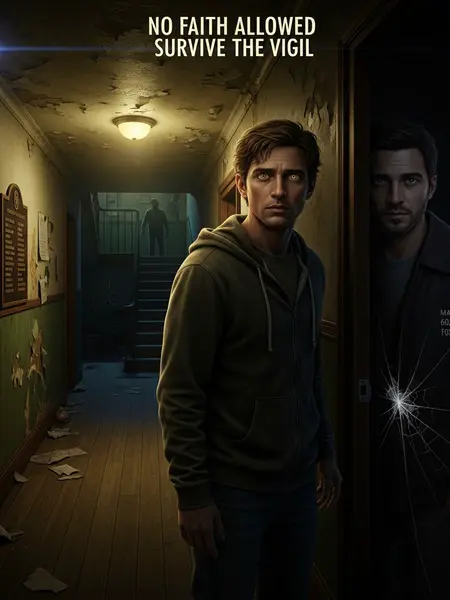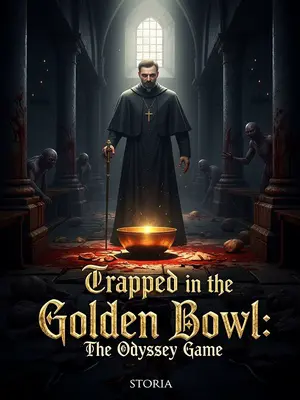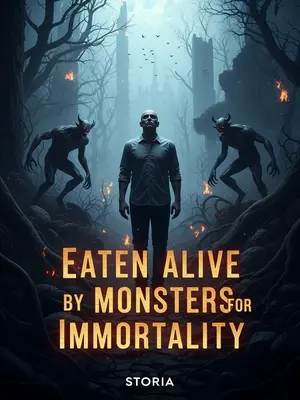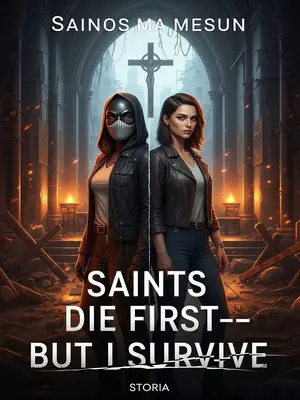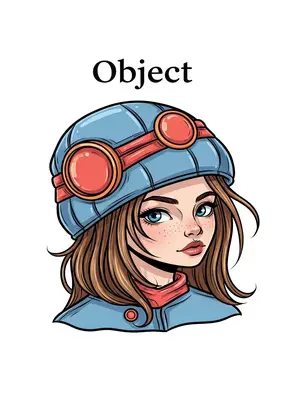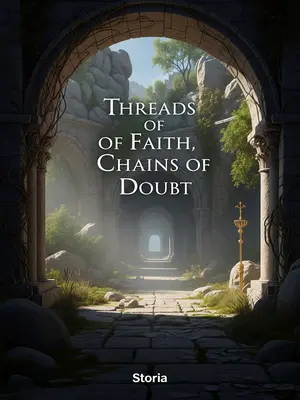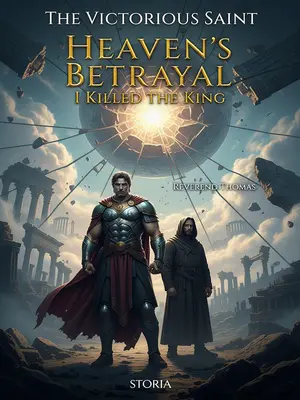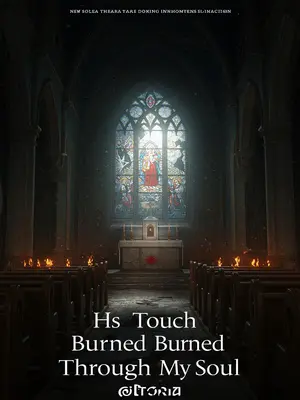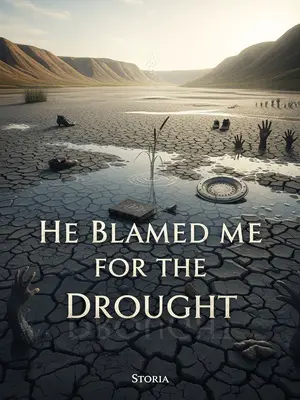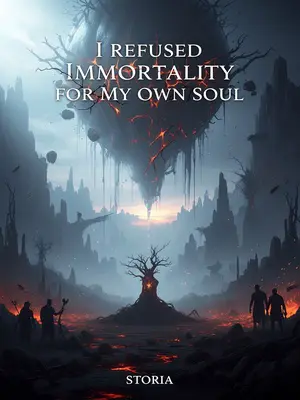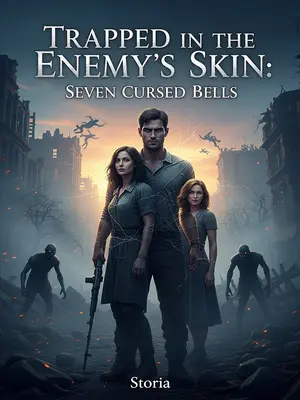Chapter 2: Secrets Shared Over Beer
I sat on the edge of my bed for a minute, chewing it over. Then I grabbed my jacket, stuffed a few crumpled bills in my pocket, and headed out. The air outside was muggy, heavy with the promise of rain.
So I went to the nearby supermarket, picked up some cigarettes and a six-pack, and figured I’d thank him face-to-face. We’re neighbors; might as well have each other’s backs.
I lingered by the beer cooler longer than I needed to, trying to remember what kind of smokes were popular back in Arkansas. In the end, I just grabbed a pack of Marlboros and hoped for the best. At checkout, the cashier gave me a look—maybe she recognized me as the new guy from the haunted building down the block. Great, just what I needed.
And I wanted to ask him what was really up with that rule.
I rehearsed the question in my head as I climbed the stairs, the six-pack sweating in my hand. The hallway was quiet, the only sound the buzz of a dying fluorescent bulb near 604.
When he opened the door, I saw he was a middle-aged man, big-bellied but with a kind face. He was friendly and invited me right in. The place smelled like old coffee and lemon cleaner—homey in a tired kind of way.
He wore a faded Razorbacks t-shirt and had a slow, easy drawl that made you want to sit down and stay awhile. He waved me to the kitchen table, and I set the beer and cigarettes down like a peace offering.
He told me his name was Mark, that he’d come up from Arkansas to invest and start a business, but lost everything when it failed—his wife even left him for someone else. With nowhere else to go, he ended up here, just trying to get by.
He shrugged as he told me, like he’d rehearsed the story a hundred times. I knew the feeling.
*Sigh. Who here isn’t down on their luck?*
We sat in silence for a moment, the kind that only happens when two people have both lost more than they care to admit. I cracked open a beer, handed it to him, and he raised it in a silent toast.
We drank together, hitting it off right away.
The beer loosened our tongues, and soon we were swapping stories about old jobs, broken dreams, and the weird stuff people leave behind in apartments. Mark’s laugh was big and warm, and for a second, it felt like we were just two regular guys, not the ghosts of our former selves.
After a few drinks, I asked him about the weird building rule.
I waited until the second beer, figuring it was polite to ease into it. Couldn’t just blurt it out, right? "So, Mark, what’s the deal with the faith thing?" I asked, trying to sound casual.
He didn’t mind. He took a sip and started telling me the story.
He leaned back, eyes drifting to the ceiling, and began.
His voice dropped a notch, like he was letting me in on a secret that had been burning a hole in his pocket for years.
He said this old apartment was originally just a regular senior housing complex, home to the elderly, the sick, the disabled, or people who’d hit rock bottom. The rent wasn’t as cheap as it is now, and there was no such rule about not practicing faith.
"Back then, folks had little altars, Bibles on the nightstand, rosaries hanging from the doorknobs. You could smell incense in the halls. No one cared. The landlord was just some guy trying to make a buck, not the grim reaper."
That only made it weirder. Older folks keep crosses and Bibles—why ban that? And even if the place was old, the facilities worked. No matter how "kind" the landlord was, why rent it out this cheap?
I thought of my grandma’s house, always smelling of lavender and old hymnals. It didn’t add up. Why would anyone ban the one comfort most folks here would want to keep?
Then Mark got to the point.
He glanced around, as if making sure no one was listening, then leaned in. I leaned in, too.
"Seven years ago, things started getting real weird around here."
I leaned in, wide-eyed, actually kind of excited to hear more.
My skin prickled. This was better than any horror movie. I took another pull from my beer, waiting for him to go on.
He didn’t stop there.
"That year, a few days before the memorial vigil, some residents said they’d suddenly seen new floors and rooms appear out of nowhere inside the building. Then they started seeing people who didn’t belong in this era—especially a creepy woman in a long, old-fashioned black dress."
He shivered a little. "One guy swore he saw her standing at the end of the hall, just staring. He moved out the next day. Didn’t even pack."
"At first, everyone thought those residents were just hallucinating, maybe making things up to drive the rent down. But then, on the night of the vigil, everything spiraled out of control…"
He paused, looking at me to see if I was buying it. I nodded, egging him on. My heart thudded a little faster.
The ones who saw things started to unravel. They went mad, screaming things like:
"The spirits have come to claim my life!"
Mark’s voice cracked a little as he recited the words. My skin prickled.
Then they jumped from their windows, slit their wrists, hanged themselves—all dying in their own homes.
He didn’t spare the details.
I felt my stomach twist.
It was the kind of story you want to laugh off, but the way he said it made it stick.
Mark took a sharp breath, his voice trembling.
"In the end, it was ruled that those people died from hallucinations caused by illness or poisoning—they just couldn’t handle it and killed themselves."
He shook his head, eyes distant. "But nobody really believed that. Not after what we saw."
"But the weirdness didn’t stop. One of the victims’ children let it slip that the bodies actually disappeared on the way to the morgue. They’ve never been found."
He tapped his cigarette on the edge of the table, ashes falling like little ghosts. I felt a chill run down my spine.
Goosebumps crawled up my arms, but Mark kept going.
I wrapped my arms around myself, half from the chill, half from the weight of his words. The apartment suddenly felt colder.
"Even stranger, every year after that, on the night of the vigil, there were more mass suicides—same weirdness, same madness, same vanished bodies. It went on for three years!"
He counted off the years on his fingers, his hand shaking a little. "Every damn year, like clockwork."
Mark said that in the end, even the police couldn’t figure it out. They only found one thing all the victims had in common:
They had all practiced some kind of faith before the incidents, and had religious objects at home.
I tried to picture it—a detective with a notepad, circling the same words over and over.
Faith.
Hope.
Loss.
If it was just one or two people, maybe it’d be a coincidence. But all of them?
The odds were too weird. I stared at the condensation on my beer can, trying to make sense of it. What the hell was going on?
After he finished, I just sat there, stunned. My mind went blank for a second, like I’d been hit with a brick.
Aren’t faith and prayer supposed to protect people?
How could practicing them drive people mad and to suicide?
I thought of all the times I’d seen folks clutching rosaries in hospital waiting rooms, or whispering prayers in the back pews of empty churches. The idea that hope could kill you felt wrong, upside-down.
The whole thing had everyone on edge. Rumor had it that some evil thing was sealed under the building, and practicing faith or prayer angered it. On the night of the vigil, it would kill in revenge. I swallowed, the story gnawing at me.
Mark’s voice dropped to a whisper. "Some folks say there’s something old, something angry, buried deep. And faith just… wakes it up."
But…
I hesitated, trying to find the right words. "If all that happened, why do people still stay here? Why does the landlord keep renting it out?"
You’d think people would’ve run for the hills.
I thought of every horror movie I’d ever seen—this was the part where the smart ones packed up and left. But Mark just sighed, like he’d heard the question a hundred times.
Mark said that after the incidents, the landlord was terrified and brought in a local priest to drive away the evil. I wondered if it actually worked.
He told me about the old priest—Father O’Connor, from the little church down on Elm. The priest came with holy water, prayers, and a cross that looked older than the building itself.
The priest discovered that the building was originally a quarantine house from the Civil War era. It was used to isolate the gravely ill. Over 150 years, a huge amount of death and pain had gathered here. I could almost smell the dust and old plaster, the way the halls creaked at night.
The priest said the energy was about to congeal into a restless spirit. But as scary as that was, it wouldn’t attack the elderly, the sick, or the weak—the worn-down, the ones running on empty—because it saw them as the same kind.
Mark explained it like this:
"It’s like the spirit doesn’t see us as a threat.
We’re already half in the grave, you know?
But someone with hope, with faith—that’s like a beacon."
But when someone set up religious objects and prayed, it shifted their energy. That made the spirit notice the living. It would attach itself to the objects, spin up hallucinations, drive people mad, and use the chance to take a new body.
He leaned in, voice barely above a whisper. "That’s why the rule’s so strict. Faith is like ringing a dinner bell for whatever’s down there." I felt my breath catch.
So as long as you were down on your luck and followed the rule about not practicing faith, nothing would happen.
It was a twisted kind of logic, but in this place, it was all anyone had.
After that, the landlord dropped the rent even lower.
Mark chuckled, but there was no humor in it. I found myself laughing too, just to keep the nerves at bay.
You couldn’t find a deal like this anywhere else in the country. No wonder the families of the residents were happy to leave their loved ones here.
I thought about the way my own folks stopped calling after my last hospital stay.
Maybe this place was the end of the line for a lot of us.
After all, compared to spending more on a hospital or nursing home, what’s so bad about living with ghosts?
Mark raised his beer, half-joking. "Hell, at least the ghosts don’t steal your Social Security check."
I laughed, and for a second, the room felt lighter.
Amazingly, in the fourth, fifth, and sixth years, nothing happened. Go figure.
No more weird sightings, either.
The place got quieter, people relaxed. Even the landlord started showing up less, leaving the day-to-day to an old guy named Walter from 105.
The rumors seemed to die out, and everything went back to normal.
People started decorating for holidays again, even if it was just a fake pumpkin or a string of Christmas lights. For a while, it almost felt like a real home.
Naturally, that pulled in more desperate folks.
Word spread—if you were out of options, this was the place to go. The waiting list got longer, the faces in the hallway got a little sadder.
The landlord went along with it, only accepting the elderly, the sick, the disabled, and the desperate. He even earned a reputation as a living saint.
I’d heard people at the grocery store call him "Saint Mike," like he was running a charity—not a haunted house.
Mark said only the old residents knew the real story.
He gave me a look, like he was passing on a torch. "Most folks here just want to forget. But some of us remember."
I felt the weight of that look settle on me.
When he finished, I felt like I got it—and yet everything still felt foggy.
My head spun with questions, but none of them seemed safe to ask.
I drained the rest of my beer, the taste suddenly bitter.
Finally, Mark patted my shoulder and told me to stick to the rule. Tonight was the fifth vigil since all this happened. I should stay home and not go out—if I did, I’d be fine.
He squeezed my shoulder, his hand warm and heavy. "Just keep your head down tonight. Don’t light any candles, don’t say any prayers, and you’ll make it through." I shivered, but nodded anyway.
I kept nodding.
I meant it, too. I’d never felt so sure about following a rule in my life.
